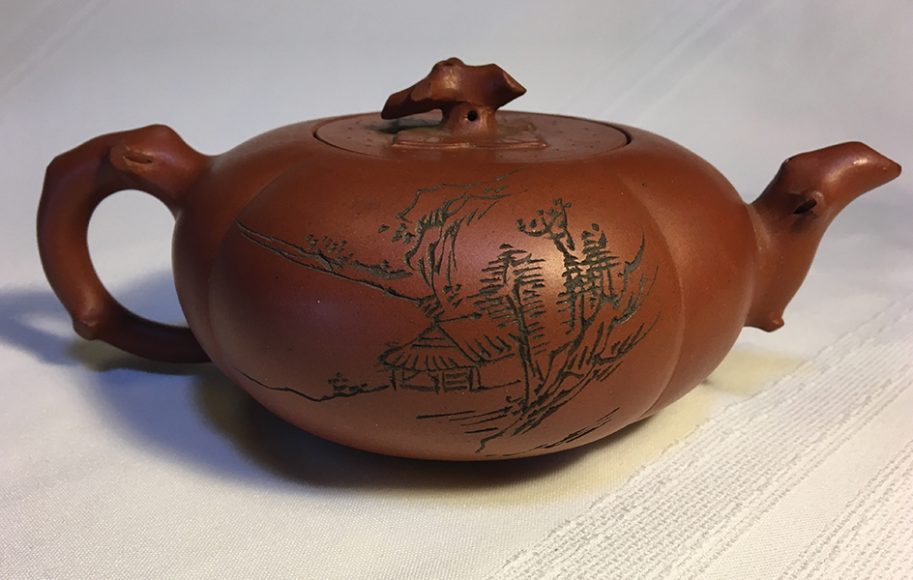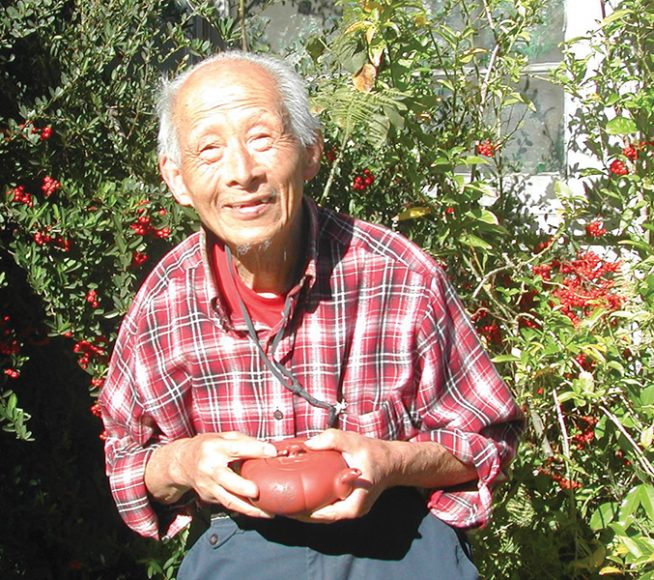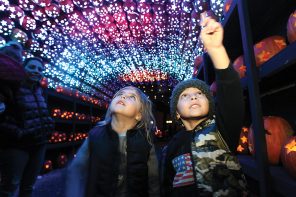Today’s world is no stranger to strongmen and dictators, but many pale in comparison to Mao Zedong, leader of the Communist Revolution.
In his turbulent life, there was once a strange encounter involving a 5-month-old baby boy and a clay teapot, which may have changed the course of history in China and in the world.
This is the unwritten story of that chance meeting, as told by the child, Daniel Ta-Che Yang, now 92 years old, to my first cousin Nelius Ronning. Daniel still has the teapot, which he brought with him when he came to the United States in 1949. This story was revealed by his mother before he left China, on the condition that he tell no one until after she died. Daniel, a retired civil servant in Los Angeles who now lives in Eagle Rock, California, was a close friend of my family and asked me to record his remarkable tale.
The event happened in the autumn of 1925 on a road between the city of Changsha, in Hunan Province, and the village of Shaoshan, where Mao Zedong was born on Dec. 26, 1893. Since his death in 1976, Mao’s birthplace has become a popular tourist attraction. At that time, the Nationalist Party was fighting for control of China and the Communists were beginning to foment a revolution.
Daniel’s Uncle Tan was the local postmaster. One late evening he was riding in his mail truck to a nearby village to establish a new post office when the old van blew a tire. It was harvest time and the rice growing in paddies by the roadside was tall, green and dry.
When the driver got out to change the tire, Uncle Tan began walking along the road. Suddenly a soiled fugitive emerged from the rice paddy and called: “Hello Tan. Am I ever glad to see you! Can you give me a ride?” Tan recognized him as Mao Zedong, a schoolteacher in Changsha, where he knew him by another local name. Mao was then 31 years old. He looked anxious. Tan could see he was in trouble. Mao said he was running away from the authorities in Changsha and immediately needed to hitch a ride. The police chief and the governor had ordered his arrest after he denounced them as corrupt officials. “I spoke the truth,” Mao declared. “When the armed police were chasing and shooting at me, I dashed into the rice field and hid.”
Hours later, he luckily saw Daniel’s uncle and hitchhiked a ride in the mail truck to the home of Daniel’s grandparents in Ningshan County.
The following is Daniel’s story as passed down by his mother and told to Nelius:
“My mormor and morfar (grandparents) were sick. They were elderly. That was 1925. I was only about 5 months old.
Approaching midnight, my uncle came to my grandparents’ home and introduced his mysterious friend by his local name (Mao It-tsu). Chinese people are allowed to have three names. My mother provided food for them.
Mao Zedong thanked my mother for the food and said, ‘I heard from your brother that you are married to the Yang family in Changsha. My spouse is also from the Yang family in Changsha. So we are relatives.’
My mother asked, ‘What is your wife’s name?’
He said, ‘Yang (Ca-fe).’
Then my mother said, ‘Wow, you are Mao Zedong, right?’
He said, ‘Yes, but please keep it quiet. I am in deep trouble. I hitchhiked to come here.’
Then my mother told my uncle, ‘Our dad will not be happy. Mao is a fugitive. This is very dangerous for us. If the local government finds out, you will all be in trouble. (Our) mother and father will have trouble.’
While talking they heard a loud pounding on the door. It was the local authorities, who had talked to the mail truck driver. He told them, ‘Yes, my boss, Mr. Tan, picked up a hitchhiker who came here.’
Then they asked my uncle; ‘Mr. Tan do you have any strangers in the house?’ He had told Mao to hide in my mother’s bedroom where my mother was changing my diaper. When Mao came into the bedroom, he said, ‘Let me change your baby’s diaper. You go out and talk.’
My mother went out and said, ‘Yes, this is my brother. My parents are sick. We are here to help with my family.’
Mao was changing my diaper. He was tickling me a little on the bottom of my feet and under my arm, saying, ‘My dear precious baby, your grandmother loves you.’ His tickles made me laugh loudly. ‘Your grandfather loves you, your uncle loves you, your mother loves you and I love you, too.’
So the policeman asked my uncle again: ‘Do you have any strangers?’ ‘No. No strangers.’ He thought Mao Zedong was my father. Then the police left.
Mother told Mao he had better leave soon. She gave him extra food to take with him. He thanked my mother profusely and said he would visit his schoolmate who had graduated from Hunan Teachers’ College. Before leaving he wanted to give her his clay teapot.
In the olden days in China, there was no safe drinking water like here. You had to take your own drinking supplies. So Mao had a teapot and a lot of tea leaves.
Mao thanked mother again: ‘You saved my life. I don’t have anything to thank you. Here, take my teapot as a little souvenir. When my mother said, ‘No thank you. You better keep it,’ he put it beside my crib and said, ‘Well, let your son have it then.’
That is why I still have Mao Zedong’s teapot.”
The teapot is now one of Daniel’s most precious possessions. It was his reward for laughing when Mao Zedong tickled his feet and posed as his father for the one shining moment that saved the life of Mao Zedong. As the world knows, Mao went on to survive the Long March and organize the Red Army to win the Chinese Civil War by defeating Chiang Kai-shek’s Nationalist Army. On Oct.1, 1949, Mao stood on The Gate of Heavenly Peace in Beijing and proclaimed the establishment of The People’s Republic of China. His controversial authoritarian Communist rule of China lasted 27 years.
Ironically, in 1949, Daniel fled China, falsely accused of being a spy for Chiang Kai-shek because he helped three Swedish women missionaries escape from the Communists.
Little did anyone know that he had been the baby who saved Mao’s life.





